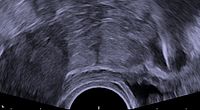
Photo from wikipedia
ObjectivesThe biocompatible 2-methacryloyloxyethyl phosphorylcholine (MPC)-polymers, which mimic a biomembrane, reduce protein adsorption and bacterial adhesion and inhibit cell attachment. The aim of this study is to clarify whether MPC-polymer can… Click to show full abstract
ObjectivesThe biocompatible 2-methacryloyloxyethyl phosphorylcholine (MPC)-polymers, which mimic a biomembrane, reduce protein adsorption and bacterial adhesion and inhibit cell attachment. The aim of this study is to clarify whether MPC-polymer can suppress the bacterial adherence in oral cavity by a crossover design. We also investigated the number of Fusobacterium nucleatum, which is the key bacterium forming dental plaque, in clinical samples.Materials and methodsThis study was a randomized, placebo-controlled, single-blind, crossover study, with two treatment periods separated by a 2-week washout period. We conducted clinical trial with 20 healthy subjects to evaluate the effect of 5% MPC-polymer mouthwash after 5 h on oral microflora. PBS was used as a control. The bacterial number in the gargling sample before and after intervention was counted by an electronic bacterial counter and a culture method. DNA amounts of total bacteria and F. nucleatum were examined by q-PCR.ResultsThe numbers of total bacteria and oral streptcocci after 5 h of 5% MPC-polymer treatment significantly decreased, compared to the control group. Moreover, the DNA amounts of total bacteria and F. nucleatum significantly decreased by 5% MPC-polymer mouthwash.ConclusionsWe suggest that MPC-polymer coating in the oral cavity may suppress the oral bacterial adherence.Clinical relevanceMPC-polymer can be a potent compound for the control of oral microflora to prevent oral infection.
Journal Title: Clinical Oral Investigations
Year Published: 2018
Link to full text (if available)
Share on Social Media: Sign Up to like & get
recommendations!